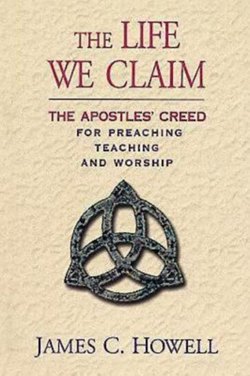Читать книгу The Life We Claim - James C. Howell - Страница 15
На сайте Литреса книга снята с продажи.
C h a p t e r T h r e e MAKER OF HEAVEN AND EARTH
Оглавление________________________________________________________
LESSON 8
MAKER OF HEAVEN AND EARTH
(PART 1)
In the beginning God created the heavens and the earth.
(Genesis 1:1)
Gregory of Nyssa called the universe "a marvelously composed hymn to the power of the Almighty."1 Saint Thomas Aquinas wrote, "In God's hand were the ends of the world: when his hand was opened by the key of love, creatures came forth."2 Dante spoke of "the love that moves the stars."3 The almighty God who is all love expressed that love by creating the universe, the earth, me sitting here writing, you sitting there reading, and this is our good fortune.
How God did it is best understood by the scientists. The Church has had an embarrassing relationship with science. Galileo is only the most famous of so many scientists we revere who were upbraided by Church authorities. Southern religious leaders cheered when a Tennessee court ruled to censure a teacher of evolution named Scopes. Too often, theology has fled science, fearing that science would pull the curtain back on God, as Toto did to the Wizard in Oz. Charles Darwin, having considered becoming a clergyman, boarded the HMS Beagle with a copy of Paradise Lost, and it was his faith that was lost: "I am like a man who has become colour-blind; disbelief crept over me at a very slow rate."4
But science, instead of shredding our faith, might actually expand our faith. When the physicist tells me the pinhole of light I see in the sky has been streaming toward me for thousands of years, when the biologist explains to me the echolocation of the bat or the visual prowess of the eagle, I finally understand that the God I've wanted to tuck in my back pocket is too small. The true God is bigger, older, more powerful, more marvelous than my mind can ever comprehend. Theodore Jennings wisely described our passion for science:
Both science and faith stand in service to humanity, to liberate humanity and the earth itself from bondage to powers of destruction. . . . When faith seeks to hold the mind and heart captive to a particular world view, science rightly chastens faith by fulfilling its own commission to liberate from illusion and fear. Yet science, too, is capable of forgetting or misunderstanding this commission. When science becomes mere technology in the quest for power it becomes an instrument of destruction.5
Must we believe the world was created literally in merely six days (as in Genesis 1)? Of course not. Galileo wrote to his friend Castelli: "I believe the intention of the Holy Bible is to persuade us toward salvation, something science could never do; only the Holy Spirit can move us. But I do not think we must believe that the same God who gave us our intellect would have us put it aside and not use it."6 God gave us brains, and God must be more delighted than anybody when we leap forward to greater knowledge of God's world.
Genesis 1 is not a physics lesson, and it was written before science had awakened in the mind of humanity. Genesis 1 is a bold proclamation of Who is the author of the universe, the force that makes it all happen, nurturing the astonishing explosion of life on this planet and the artistry of light in the farthest reaches of space. The world is not here by chance. The universe has a purpose.
